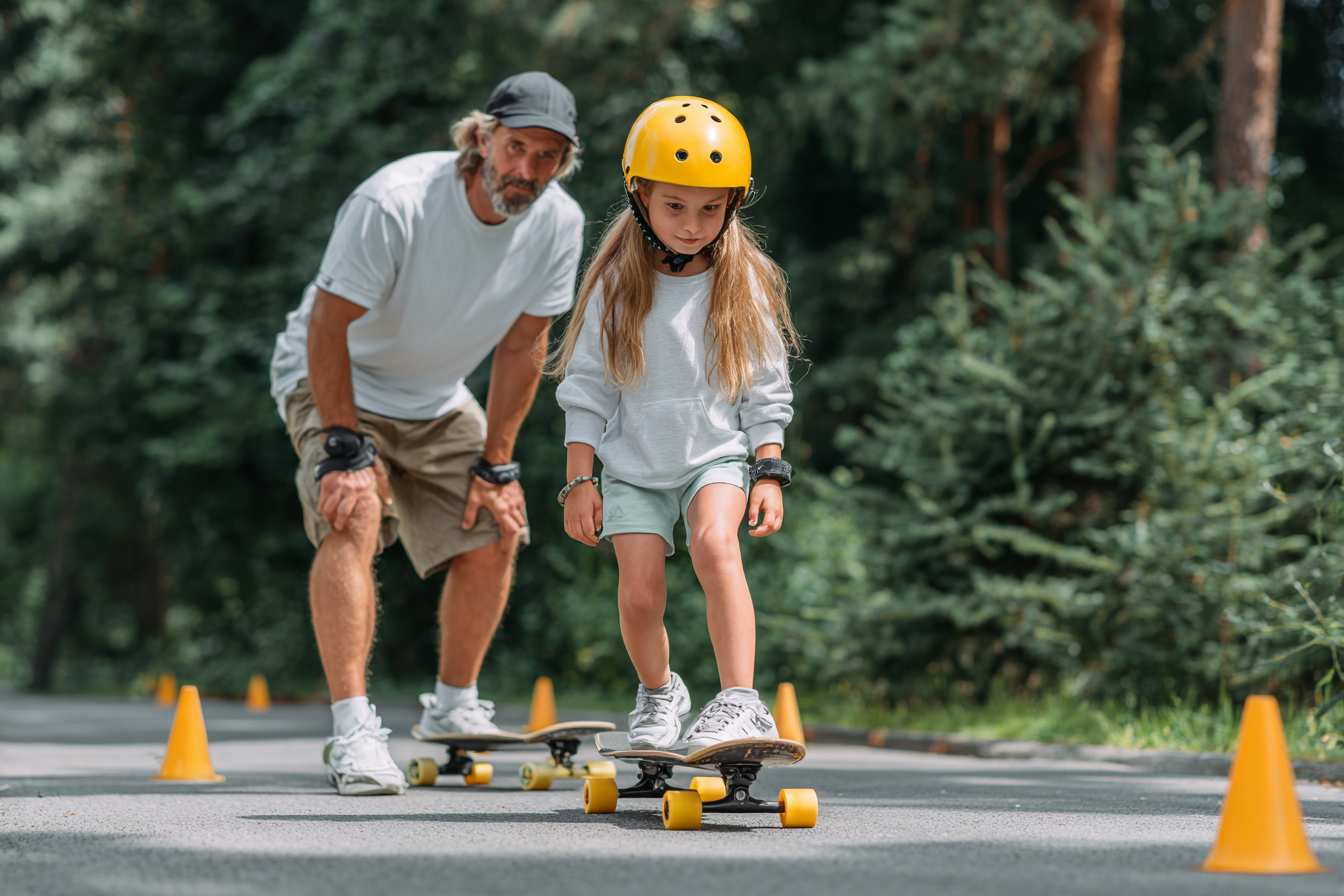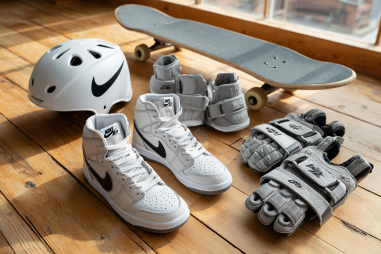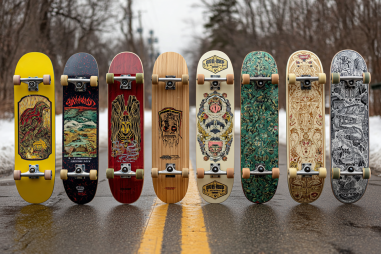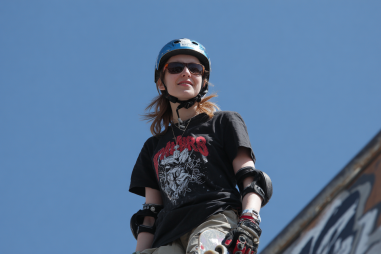Skateboarding has long been seen as an activity reserved for naturally gifted athletes or rebellious youth with quick reflexes. Many newcomers hesitate to pick up a board because they believe you must be born with a special talent or athleticism to ride well. This misconception creates a significant barrier for those interested in learning to skate, making the sport seem intimidating or unreachable. However, the truth is that skateboarding is a skill developed over time through practice, patience, and perseverance — just like any other sport or physical activity. In this article, we’ll debunk some common myths related to skill and talent in skateboarding and encourage beginners to approach skating with confidence and excitement.
Myth 1: You Need Natural Talent to Skateboard Well
One of the most persistent myths surrounding skateboarding is that you must have innate talent to become skilled. Many people assume that great skaters are born, not made, which can deter beginners from even trying. While it’s true that some individuals may have better balance, coordination, or spatial awareness early on, these traits alone don’t guarantee success or enjoyment in skateboarding.
Like any sport, skateboarding is a combination of multiple learned skills: pushing, turning, balancing, flicking the board for tricks, and reading the terrain. These abilities are developed over time with consistent effort. In fact, many professional skaters emphasize that their progress came from hours of practice and failing repeatedly before mastering moves. The key is dedication rather than inherent talent.
Remember, no skateboarder started with perfect control and style. Skill emerges from making mistakes, adjusting, and trying again. So instead of worrying whether you’re “naturally talented,” focus on getting comfortable with your board and enjoying the process.
Myth 2: Skateboarding Is Too Hard to Learn as an Adult
Another common misconception is that skateboarding is only for kids or teenagers and that learning later in life is “too hard” or even impossible. While it’s true that younger bodies may adapt a bit faster to new physical challenges, adults absolutely can learn to skateboard and become adept at it. Plenty of skaters began after their teen years and have gone on to enjoy skating for recreation, transportation, or even competition.
Learning as an adult often comes with advantages: adults generally have better focus, patience, and discipline than children, which can accelerate learning in some ways. The biggest obstacle might be mental rather than physical — overcoming fear of falling or embarrassment. Once you accept that falling is part of the growth process and commitment to regular practice, the odds of success improve drastically.
If you’re an adult interested in skating, start slowly with the basics like balancing, pushing, and turning on smooth terrain. Wear protective gear to build confidence and take lessons or watch tutorials designed for beginner adults. With persistence, you can progress quickly and even tackle more advanced tricks over time.
Myth 3: Progress Is Instant or It’s Not Worth It
A widespread and discouraging myth is that you should be able to land tricks or skate smoothly right away, or else it’s not worth the effort. In the age of social media, where talented skaters post flawless clips daily, it’s easy to feel discouraged if your own progress seems slow.
Skateboarding, like any new skill, requires time to build muscle memory and confidence. Progress is rarely linear — some days you might feel like you’ve improved, other days you might feel stuck or frustrated. It’s important to celebrate small wins, like successfully riding your board across the driveway or balancing without wobbling, as these form the foundation for bigger breakthroughs.
Expecting instant success often leads to impatience and quitting too early. Instead, think of skating as an ongoing journey where every practice session adds up. By committing to consistent effort and recognizing that setbacks are normal, you’ll keep your motivation alive and enjoy the process more.
Realistic Learning Curves and Skill Development Tips
Understanding the realistic learning curve of skateboarding can help beginners set achievable goals and maintain enthusiasm. Typically, beginners spend the first weeks getting comfortable riding the board, pushing, and turning without losing balance. This initial phase is all about building foundational skills.
After that, beginners usually start practicing simple tricks like ollies, manuals, and small grind tricks, which require more precision and timing. This phase can last several months or even years depending on how much time you dedicate. Advanced tricks and flow come later with continuous refinement and creativity.
Here are some practical tips for skill development in skateboarding:
- Practice regularly: Short, frequent sessions are more effective than occasional long practices.
- Focus on fundamentals: Mastering basic balance, stance, and movement sets you up for advanced skills.
- Use protective gear: Helmets, knee pads, and wrist guards build confidence and reduce injury risk.
- Watch tutorials and learn from others: Videos, skate parks, and skate communities provide valuable insights and inspiration.
- Be patient: Accept that falling and failing are natural parts of learning.
- Celebrate your progress: Recognize small milestones to stay motivated.
Inspiring Stories of Skaters Who Started Late
Many skaters have started their journey well past teenage years and achieved remarkable progress — proving that age and early talent aren’t prerequisites for skateboarding. For example, Bryan Herman started skating competitively in his twenties and eventually earned sponsorships and recognition. Similarly, professional skateboarder Rodney Mullen, often called the godfather of street skating, was just a regular kid who developed his style through years of practice rather than innate genius.
There are countless stories online of adults picking up boards for the first time and finding joy, community, and confidence through skating. These success stories illustrate that dedication, consistency, and passion matter far more than when or how you begin.
Embracing Progress and Persistence
At its core, skateboarding is an inclusive and creative sport where self-expression and fun are as important as skill level. Myths about needing natural talent or immediate success shouldn’t stop anyone from giving it a shot. With realistic expectations and a positive mindset, anyone can learn to skateboard at any age.
The path to becoming a skilled skateboarder involves small steps, repeated practice, and the courage to fall and get back up again. By shifting your focus from talent to growth, you’ll find skateboarding to be a rewarding journey full of personal achievements and new friendships. So grab a board, take your time, and start rolling — your skateboarding adventure awaits!







